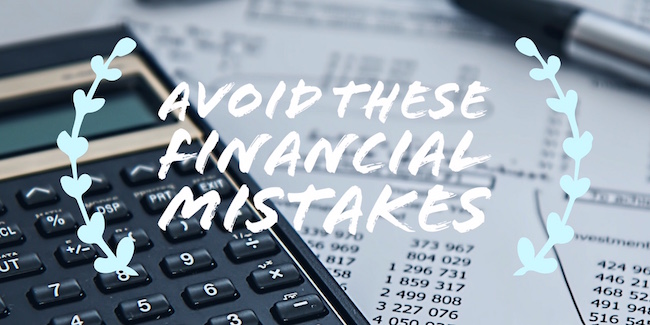Your 20s and 30s are a crazy time. They are years of deep growth, discovery, and firsts: first real job, first apartment, first serious relationship, and first time feeling like a “real” adult. But in the middle of all this exciting chaos, you are also quietly building the foundation for the rest of your financial life. The things you do now, the habits you build, and the “financial mistakes” you don’t make will have a big effect on who you are in your 40s, 50s, and beyond.
As a financial writer who has spent more than ten years looking at the stories of both rich and poor people, I can tell you something very important: financial success is less about making one great move and more about avoiding a few big mistakes over and over again. A single, explosive event won’t ruin your financial future; a series of small, seemingly unimportant leaks will, over time, sink the whole ship.
We won’t just point out the problems; we’ll also give you a clear, actionable plan for how to avoid them. This is like the financial playbook you never got in school. You can avoid making these mistakes and instead create a future full of freedom, choice, and safety instead of one full of regret.
The Basic Sin: Not Having a Plan (Also Known As “Flying Blind”)
This is the big mistake that leads to all other financial mistakes. You think you can just “wing it” with your money and everything will somehow work out.
The mistake: You think of your money as a series of short-term decisions that don’t connect, when in fact it’s a tool for a long-term vision. You don’t have a budget, any goals, or any idea where your money is going each month. You don’t plan ahead when it comes to your money. You are not the driver of your own money car; you are the passenger.
Why It’s Bad: You can’t make decisions without a plan. Is it a good idea to take a $2,000 vacation? Is it fair to pay $500 for a car? You can’t know without a budget and goals. This lack of direction causes people to spend too much money without meaning to, miss chances to save money, and always feel anxious about money. You put in a lot of effort to make money, but if you don’t have a plan, that money is wasted.
The Proactive Solution: Be the CEO of You, Inc.
- Make Your First Budget (The 50/30/20 Rule): This isn’t about limiting yourself; it’s about being aware. Keep track of what you spend for one month. Next, use the 50/30/20 rule: 50% of your take-home pay should go to needs like rent, utilities, and groceries; 30% should go to wants like eating out and hobbies; and 20% should go to savings and paying off debt. This easy rule gives you a plan right away.
- What do you want your money to do for you? Define your “Big 3” financial goals. Choose one goal for the short term (1–2 years), one for the medium term (3–10 years), and one for the long term (10+ years). Make them SMART: specific, measurable, doable, important, and time-bound. For instance:
- Short-Term: “In 5 months, save $1,000 for an emergency fund.”
- “Pay off my $15,000 car loan in four years” is a mid-term goal.
- Long-Term: “By the time you’re 65, have $1 million saved for retirement.”
- Set up a “money date” once a month: Set aside 30 minutes every month for this appointment. Now is the time to look over your budget, see how far you’ve come, and make small changes. This one simple habit changes you from a passive observer to an active manager of your money.
Aggressive lifestyle inflation is the silent wealth killer.
You got a pay raise! You worked hard for years and finally got a promotion and a big raise. What do most people do first? Make everything better. This is one of the worst financial mistakes you can make.
The Mistake: Your spending goes up at the same rate as your income, or even faster. Your apartment that costs $1,500 a month now costs $2,200 a month. Your dependable Honda turns into a high-end BMW that costs a lot of money. Your lunches that you make at home turn into takeout every day. Even though you make more money, you still feel broke because your financial finish line keeps moving farther away.
Why It’s Bad: Lifestyle inflation kills the ability to make money. Your income is the best way to build wealth, and every time you get a raise, you have a great chance to reach your financial goals faster. If you let lifestyle inflation take all of your new income, you are wasting that chance. You are choosing to make your current comfort better, but it will cost you your future freedom.
The “Split and Automate” Strategy: A Proactive Solution
- Plan Your Future Raises Ahead of Time: Set a rule for yourself before you get your next raise. The 50/50 rule is a great place to start. It says that half of any new after-tax income will automatically go toward your financial goals (savings, investments, debt), and the other half can be used to carefully improve your way of life.
- Automate the Increase: As soon as you find out your new salary, go to your 401(k) and bank account. Increase your automatic contributions before you even get your first new paycheck. If your raise is $400 a month after taxes, you should immediately add $200 to your 401(k) and your automatic savings transfer. This way, you won’t even see the money, so you won’t want to spend it.
- Have a one-time splurge to celebrate: You should celebrate your success. Instead of making a new monthly payment, like for a car, treat yourself to something nice, like a nice watch, a trip over the weekend, or a fancy dinner. This gives you the pleasure without the long-term money loss.
The Big Mistake You Made in Your 40s: Not Paying Attention to Compound Interest
If you could ask a group of 45-year-olds what their biggest financial regret was, they would all say, “I wish I had started investing earlier.” This is, without a doubt, the most expensive of all financial mistakes.
The Mistake: You think that investing is only for “rich people” or that you’ll do it “later,” when you have more money. You keep your savings in cash, which earns almost nothing, while the most powerful force in the universe, compound interest, goes by.
Why It’s Bad: You can never get back the days you don’t invest. Because compounding grows at an exponential rate, a dollar you put in in your early 20s is worth a lot more than a dollar you put in in your late 30s. If you wait just a few years, you could lose hundreds of thousands or even millions of dollars in future wealth. Time is the most important thing you need to get rich, not money.
The “Start Small, Start Now” Investment Plan: A Proactive Solution
- Get Your 401(k) Match: If your employer offers a 401(k) with a company match, this is the first thing you need to do and can’t change. Putting in enough to get the full match is like getting a 100% return on your money right away. If you don’t do it, you’re giving up free money.
- Open a Roth IRA Today: You can open an Individual Retirement Account (IRA) yourself. A Roth IRA is like a superhero for young people who want to invest. You put in money after taxes, and it grows completely tax-free until you retire. A cheap brokerage like Vanguard, Fidelity, or Charles Schwab can help you open one in 15 minutes.
- Automate a “Ridiculously Small” Amount: The point is to get into the habit. Set up an automatic transfer of $50 or $100 a month to your Roth IRA. The amount doesn’t matter as much as the fact that you start.
- Put your money into one thing: a target-date index fund. Don’t let too many options stop you. A target-date fund, like the “Target Retirement 2065 Fund,” is the easiest and best choice. You choose the year that is closest to when you plan to retire, and the fund takes care of all the diversification and rebalancing for you. It’s like investing on its own.
The Confusion Between Good Debt and Bad Debt
Debt is a tool, and like any tool, it can be used to make things better or worse. One of the worst financial mistakes you can make is not knowing the difference between good debt and bad debt and treating them the same.
The Mistake: You put all of your debts together. You might pay off a low-interest student loan quickly while ignoring a credit card balance with a 25% APR that is slowly eating you alive. Or worse, you think that debt is a normal part of life, and you get “bad debt” to pay for things you want.
Why It’s Bad: “Bad debt,” which is high-interest, unsecured debt like credit card balances, is like a financial cancer. The interest rates are so high that they work against you, making it almost impossible to get ahead. If you only make the minimum payments on a $5,000 credit card with a 22% APR, it could cost you thousands of dollars in interest and take years to pay off. “Good debt,” like a reasonable mortgage or a federal student loan for a degree that will help you make a lot of money, has a low interest rate and is linked to an asset that can go up in value.
The “Financial Triage” Method: A Proactive Solution
- Make a list of all your debts. Make a spreadsheet with four columns: the name of the debt, the total balance, the minimum payment, and the interest rate (APR).
- Distinguish the Good from the Bad: Make a line. If you have debt with an interest rate higher than 7–8%, it’s “bad debt,” and you need to deal with it right away. Most federal student loans and mortgages, for example, are “good debt” that can be managed.
- Attack Bad Debt with Everything You’ve Got: Pick your weapon:
- Debt Avalanche (Mathematically Optimal): Pay the minimums on all of your debts while attacking the one with the highest interest rate first.
- Debt Snowball (Psychologically Powerful): Start with the debt with the lowest balance to get a quick win and build momentum.
- Think about getting a balance transfer credit card with a 0% introductory APR to stop the interest from building up while you pay off the principal quickly.
- Set Up Autopay for Good Debt: For debts with lower interest rates, just make sure you always pay on time through autopay. There’s no mathematical reason to pay these off early when you could be making more money in the stock market.
The Tax on Not Knowing How to Handle Money
We learn the Pythagorean theorem in school, but we don’t learn how a 401(k) works. It’s not your fault that you don’t have any education, but not fixing it is one of the most expensive financial mistakes you can make.
The Mistake: You don’t want to learn about personal finance because it seems “boring” or “hard.” You let other people do the thinking for you, or you just make decisions based on what your friends and family say.
Why It’s Bad: Not knowing the basics of personal finance is like trying to play a game without knowing the rules. You will have to pay a “tax” for not knowing this for the rest of your life. This tax is made up of high investment fees, bad loan terms, missed tax deductions, and bad insurance choices. This “illiteracy tax” can add up to a lot of money over a lifetime.
The “15-Minute a Day” Education Habit: A Proactive Solution
- Choose Your Financial “Mentors”: You don’t have to take a class. You can get a top-notch education in finance for free.
- Podcasts: Listen to well-known shows like The Money Guy Show, Afford Anything, or Planet Money while you drive or work out.
- Books: Make a promise to read one basic personal finance book every three months. The Simple Path to Wealth by JL Collins, I Will Teach You to Be Rich by Ramit Sethi, or The Psychology of Money by Morgan Housel are good places to start.
- Blogs/Websites: Read high-quality financial blogs and websites like NerdWallet, Investopedia, or the one you are reading right now.
- Learn One New Word a Week: Are you feeling too busy? Learn one new thing every week. Find out what a Roth IRA is this week. Next week, we’ll talk about “What is an index fund?” Over time, small, regular learning builds a strong base of knowledge.
The Six Other Big Money Mistakes You Shouldn’t Make
The five mistakes above are the worst, but there are a few others that can really slow you down.
- Not having an emergency fund is like driving without a seatbelt. If you lose your job, get a big medical bill, or have to fix your car, you’ll have to take on high-interest debt, which will turn a small problem into a big one. Solution: The first thing you should save for is a $1,000 starter emergency fund. Then, put it in a separate high-yield savings account and build it up to cover three to six months of basic living costs.
7. Not Negotiating Your Salary: The pay you agree to for your first job will be the same for all of your future jobs. Not being able to negotiate can cost you hundreds of thousands of dollars over your career. *Answer:* Always haggle. Find out what the average pay is for your job on sites like Glassdoor and Payscale. Practice your pitch. Even a 5% rise is a huge win over the course of your life.
- Staying Underinsured: A single disaster, like a car accident, a fire in your apartment, or a long-term disability, can wipe out ten years of hard work. Solution: At the very least, you should have health, auto, and renter’s or homeowner’s insurance. You need term life insurance if anyone depends on your money. Don’t forget about disability insurance; it protects your most valuable asset: your ability to make money.
**9. Making Big Financial Decisions with a Partner Without a Plan: If you and your partner don’t talk openly and honestly about money, merging your financial lives is a recipe for disaster. *Solution:* Have the “money talk” before you move in together, get married, or even get a joint credit card. Talk about your debts, your financial goals, how you spend your money, and how you plan to work together to manage your money.
- Trying to “get rich quick”: Investing in crypto fads, day trading, or other risky investments without knowing what you’re doing is not investing; it’s gambling. Solution: Use a boring, proven, long-term plan. Put money into low-cost, diversified index funds on a regular basis. In the race for money, slow and steady wins.
**11. Putting your kids’ college savings ahead of your own retirement: You can borrow money for college, but you can’t borrow money for retirement. The best thing you can do for your kids is to make sure your own financial future is safe. *Solution:* Follow the order of operations: make sure your own retirement is safe first by putting at least 15% of your income into your retirement accounts. After that, put money into tax-advantaged accounts like a 529 plan to help pay for college.
**12. Letting Fear or Perfectionism Stop You:** The fear of making a mistake can be so strong that you do nothing at all, which is the worst thing you can do. *Solution:* Accept the idea of “good enough.” You don’t need the “perfect” investment portfolio or budget. You only need to begin. A good plan that you follow through on is a million times better than a perfect plan that you never put into action.
You Can Choose Your Future, Not Just What Happens
It’s not hard to get to financial freedom, but you have to be determined. You shouldn’t see these common “financial mistakes” as a list of things to be afraid of. Instead, you should see them as guideposts that tell you which paths to stay away from.
You are in the best position of your life to make choices that will have an effect for years to come. You are not just avoiding mistakes by making a plan, fighting lifestyle inflation, embracing the magic of compounding, managing debt wisely, and committing to lifelong learning. You are actively designing a future that is safe, full of opportunities, and full of deep freedom.
You should drive, not ride. Your future self will be grateful for it.
Source:
https://www.irs.gov/retirement-plans/roth-iras
https://investor.vanguard.com/ira/roth-ira




